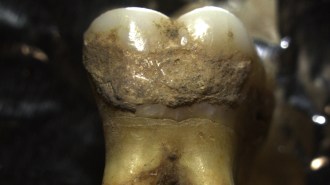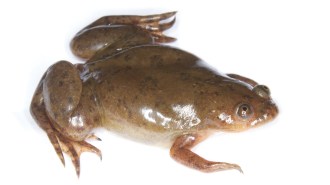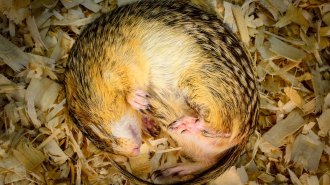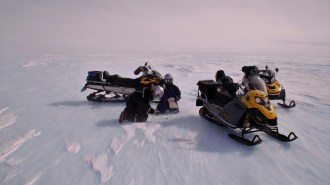Uncategorized
-
 Oceans
OceansThe past’s extreme ocean heat waves are now the new normal
Marine heat waves that were rare more than a century ago now routinely occur in more than half of global ocean, suggesting we’ve hit a “point of no return.”
-
 Planetary Science
Planetary ScienceEarth has a second known ‘Trojan asteroid’ that shares its orbit
A recently found space rock is about one kilometer wide, orbits ahead of Earth around the sun and will stick around for at least 4,000 years.
By Liz Kruesi -
 Archaeology
ArchaeologyA taste for wild cereal sowed farming’s spread in ancient Europe
Balkan groups collected and ate wild cereal grains several millennia before domesticated cereals reached Europe.
By Bruce Bower -
 Animals
AnimalsA new device helps frogs regrow working legs after an amputation
A single treatment shortly after adult frogs lost part of their legs spurred regrowth of limbs useful for swimming, standing and kicking.
-
 Health & Medicine
Health & MedicineWill animal-to-human organ transplants overcome their complicated history?
The elusive goal of using animal organs for transplants could be within reach, but it’s too soon to tell.
By Laura Beil -
 Science & Society
Science & SocietyHere are the Top 10 science anniversaries of 2022
Insulin to treat diabetes, the slide rule and the birthdays of Gregor Mendel and Louis Pasteur make the list.
-
 Health & Medicine
Health & Medicine50 years ago, researchers thought Americans outgrew marijuana
In the 1970s, it was thought that adults over age 25 may “outgrow” marijuana. Fifty years later, older adults are in on the action.
-
 Tech
TechMaterials of the last century shaped modern life, but at a price
From our homes and cities to our electronics and clothing, the stuff of daily life is dramatically different from decades ago.
-
 Animals
AnimalsGut microbes help some squirrels stay strong during hibernation
Microbes living in the critters’ guts take nitrogen from urea and put it into the amino acid glutamine, helping squirrels retain muscle in the winter.
-
 Animals
AnimalsUrban animals may get some dangerous gut microbes from humans
Fecal samples from urban wildlife suggest human gut microbes might be spilling over to the animals. The microbes could jeopardize the animals’ health.
-
 Neuroscience
NeuroscienceAmericans tend to assume imaginary faces are male
When people see imaginary faces in everyday objects, those faces are more likely to be perceived as male, a new study shows.
-
 Planetary Science
Planetary ScienceMachine learning points to prime places in Antarctica to find meteorites
Using data on how ice moves across Antarctica, researchers identified more than 600 spots where space rocks may gather on the southern continent.